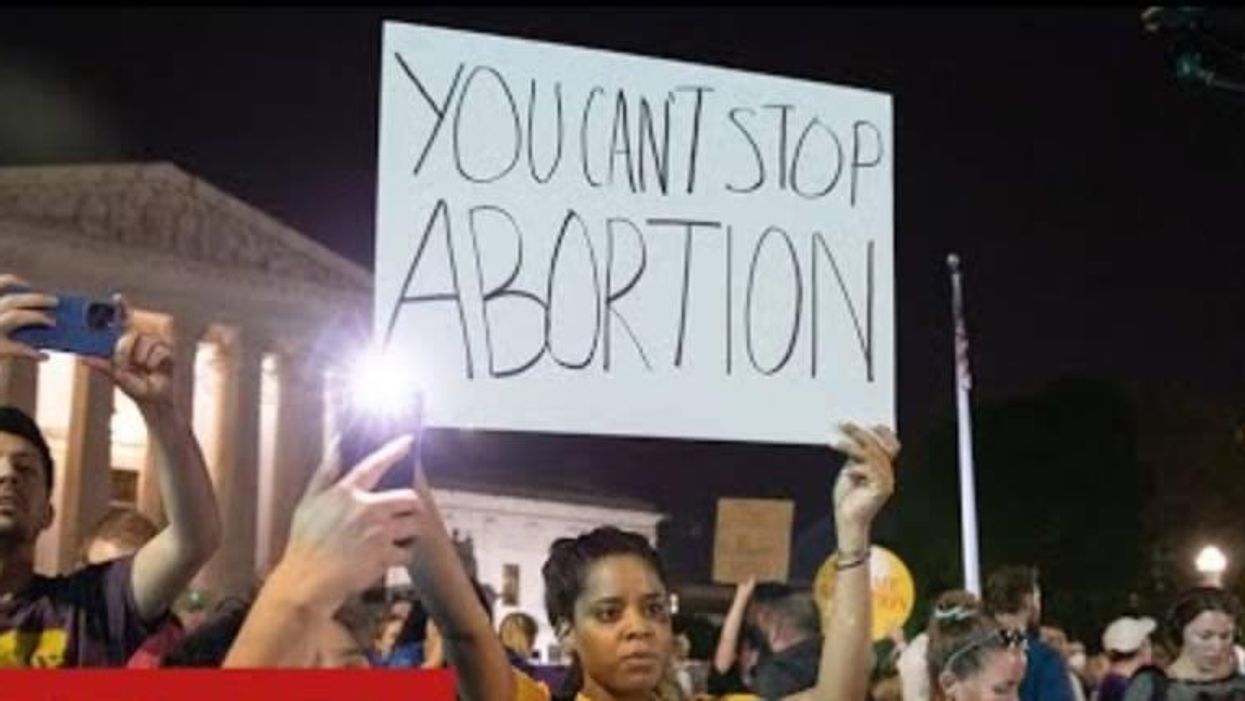Walker Fits Pattern Of Anti-Choice Republicans Who Allegedly Paid For Abortions
The Daily Beast reported on Monday that in 2009, Georgia Republican Senate nominee Herschel Walker allegedly paid for a woman he got pregnant to have an abortion.
Walker has denied the Beast's reporting, calling the story a "flat-out lie" and a "repugnant hatchet job" and threatening to sue the news outlet for defamation.
During his Senate campaign, Walker has alluded to the idea that abortion should be banned in all circumstances, including when the life of the pregnant person is at risk.
"There's no exception in my mind," Walker told reporters in May. "Like I say, I believe in life. I believe in life."
The Beast’s story is an “October Surprise” for the Georgia Senate race, which finds Democrats fighting to hold on to the seat that Sen. Raphael Warnock won in a special election in January 2021.
Walker isn't the first Republican whose public stance on abortion rights has conflicted with his alleged private actions.
Two other Republicans running in November have been accused of either paying for or encouraging women in their lives to have abortions despite claiming to oppose the procedure.
Rep. Scott DesJarlais (R-TN) allegedly encouraged both his wife and his lover to get abortions. DesJarlais has said he is "100% pro-life."
In the final days of the 2012 election, a transcript of an undated phone conversation between DesJarlais and his ex-wife before their divorce was finalized in 2001 became public.
"You told me you'd have an abortion, and now we're getting too far along without one," DesJarlais allegedly told his wife. "If we need to go to Atlanta, or whatever, to get this solved and get it over with so we can get on with our lives, then let's do it."
DesJarlais won reelection in 2012 against a Democrat in his heavily Republican district. In 2014, he faced a primary challenge from a Republican state legislator and eked out a win by just 38 votes. DesJarlais has comfortably won reelection since then.
Then there's Mike Erickson, the Republican nominee in Oregon's newly created Sixth Congressional District.
In the early 2000s, Erickson allegedly drove his girlfriend to a doctor's office and paid $300 for her to get an abortion.
The revelation first came to light in 2008, when Erickson ran a failed campaign for Congress on a "pro-life" platform. He's now running for Congress again against a pro-abortion rights Democrat in a race rated a "tilt Democratic" contest by Inside Elections.
A fourth self-described "pro-life" Republican ended up resigning from Congress in 2017 after reports surfaced that he had encouraged a woman with whom he had had an affair to get an abortion.
Rep. Tim Murphy of Pennsylvania resigned after a text message from the woman leaked. She told Murphy that he had "zero issue posting your pro-life stance all over the place when you had no issue asking me to abort our unborn child just last week when we thought that was one of the options."
Murphy allegedly encouraged the woman to have an abortion, despite being a member of the House "Pro-Life Caucus" and despite having voted for a national abortion ban.
Abortion is a major issue in the 2022 midterm elections. This summer, the Supreme Court overturned its landmark 1973 Roe v. Wade decision, which had affirmed the constitutional right to an abortion before fetal viability, around 24 weeks gestation.
Polling shows that most Americans disagree with the court's decision and think abortion should be legal in all or most cases.
Democrats have been hammering GOP candidates on the airwaves for their opposition to abortion.
In Georgia, a Quinnipiac poll found that abortion rights are at the top of voters' minds. That same poll found Warnock leading Walker 52 percent to 46 percent.
A poll published Tuesday by NARAL Pro-Choice America found that 62 percent of Georgia voters oppose the overturning of Roe.
Inside Elections rates the Georgia Senate race a "toss-up" contest.
Reprinted with permission from American Independent.












